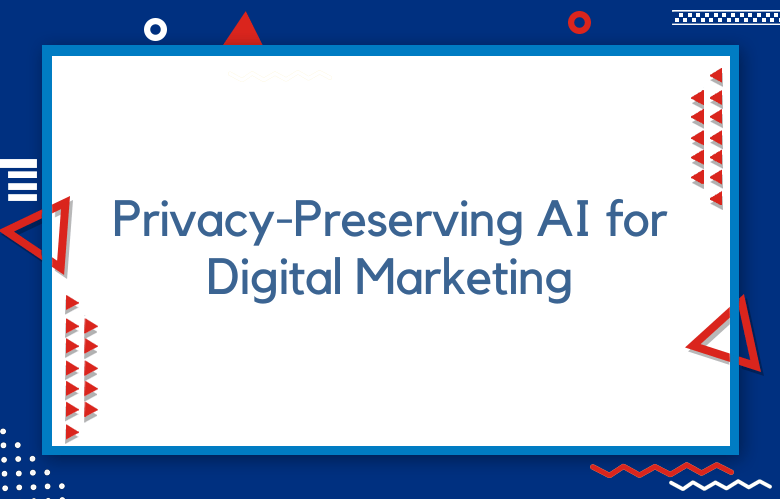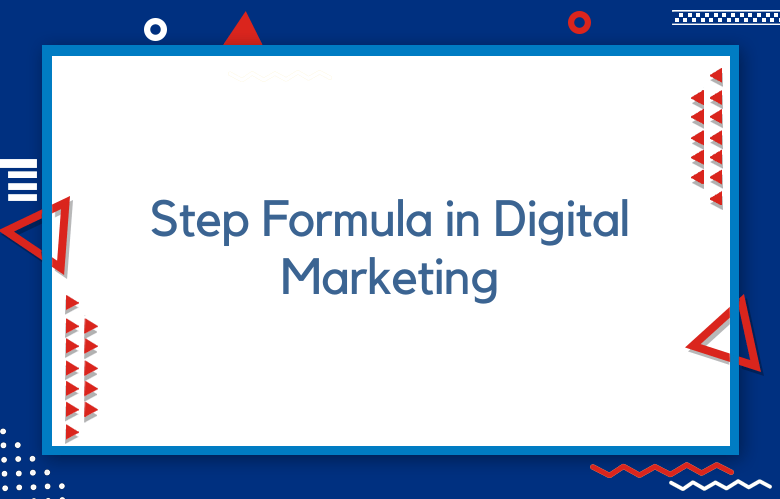Privacy-Preserving AI for Digital Marketing: Strategies & Best Practices

Privacy-preserving AI in digital marketing represents a paradigm shift towards more secure and respectful handling of consumer data while still leveraging advanced analytics and machine learning to drive marketing strategies. As consumers become increasingly aware of privacy issues and regulations like GDPR and CCPA, which set stricter data handling requirements, marketers must adopt AI technologies that protect individual privacy without compromising the insights needed for effective targeting and personalization.
Privacy-Preserving AI for Digital Marketing: Strategies & Best Practices
This approach involves innovative AI techniques such as federated learning, differential privacy, and homomorphic encryption, which allow for the analysis of consumer data and the derivation of valuable insights without exposing or transferring raw data. Privacy-preserving AI enables marketers to balance the dual objectives of personalizing customer experiences and safeguarding consumer privacy.
Implementing privacy-preserving AI in digital marketing requires a deep understanding of the technological aspects and the ethical considerations of handling consumer data. Best practices include transparent data usage policies, obtaining explicit consent for data collection, minimizing data collection to only what is necessary, and continuously monitoring and updating data security measures.
By integrating privacy-preserving AI into their digital marketing strategies, brands can build stronger trust with their customers, ensure loyalty, and comply with global data protection standards. All while harnessing the power of AI for more effective and efficient marketing outcomes.
- Key Takeaways
- AI’s Role in Modern Marketing
- Understanding Data Privacy Risks
- Leveraging AI for Data Protection
- Complying with Digital Marketing Regulations
- Strategies for Privacy-Preserving AI
- Best Practices in AI Implementation
- Future Trends in Secure Marketing
- Case Studies on Successful Applications
- Final Remarks
- Frequently Asked Questions
- What is the significance of privacy-preserving AI in digital marketing?
- How can businesses leverage AI for data protection in marketing practices?
- What are the key strategies for implementing privacy-preserving AI in digital marketing campaigns?
- Why is it essential for companies to comply with digital marketing regulations when using AI technologies?
- How can businesses stay updated on future trends in secure marketing practices involving AI?
Did you know 87% of consumers are willing to do business with companies using privacy-preserving AI for digital marketing to protect their data? Leveraging cutting-edge technology while respecting user privacy is no longer a choice but necessary in today’s data-driven world. Privacy-preserving AI empowers marketers to analyze and target audiences effectively without compromising sensitive information. By embracing this innovative approach, businesses can enhance customer trust, boost engagement, and drive conversions. Stay ahead of the curve by exploring how privacy-preserving AI can revolutionize your digital marketing strategies and propel your brand toward success.
Key Takeaways
- Implement privacy-preserving AI in digital marketing to enhance customer trust and loyalty.
- Prioritize data protection by understanding and mitigating potential privacy risks associated with AI technologies.
- Ensure compliance with digital marketing regulations by integrating privacy measures into AI strategies.
- Adopt best practices in AI implementation, such as data anonymization and encryption, to safeguard customer information.
- Stay ahead of future trends in secure marketing by continuously updating AI systems and strategies.
- Learn from successful case studies on privacy-preserving AI applications to inspire and guide your marketing initiatives.
AI’s Role in Modern Marketing
Personalized Interactions
Using AI-powered chatbots enables businesses to engage with customers on a more personal level. These chatbots can analyze data in real time, providing tailored responses to each individual’s inquiries.
Implementing AI for personalized customer interactions can help companies create a seamless experience that resonates with their audience. This approach enhances customer satisfaction and increases the likelihood of converting leads into sales.
Dynamic Pricing Strategies
AI plays a crucial role in helping businesses implement dynamic pricing strategies. By analyzing real-time market data, AI algorithms can adjust prices based on demand, competition, and other relevant factors.
Using AI for dynamic pricing allows companies to optimize their pricing strategies for maximum profitability while ensuring they remain competitive. This proactive approach helps businesses stay ahead of the curve and adapt quickly to changing market conditions.
User Engagement Enhancement
Employing AI-driven content recommendations is a powerful strategy for enhancing user engagement. By analyzing user behavior and preferences, AI algorithms can suggest relevant content to individuals, keeping them interested and involved.
Through personalized content recommendations, businesses can increase user engagement metrics such as time spent on site, click-through rates, and overall interaction levels. This results in a more satisfying user experience and strengthens brand loyalty.
Understanding Data Privacy Risks
Regular Audits
Conduct regular security audits to ensure data integrity and confidentiality and identify potential data breaches. These audits help detect vulnerabilities that could lead to unauthorized access to sensitive information.
Regular security audits are essential to maintain the integrity of user data and uphold individual privacy rights. Organizations can proactively monitor systems and networks to prevent data exposure risks and safeguard user trust.
Educating Marketing Teams
Educate marketing teams on the significance of data anonymization techniques to protect personal information and privacy. Implementing these techniques ensures user data is used for insights without compromising privacy rights.
By training marketing teams on data anonymization, organizations can enhance their privacy toolbox and minimize concerns related to unauthorized access to sensitive information. This proactive approach fosters a culture of responsibility towards user privacy.
Evolving Regulations
Stay updated on evolving data privacy regulations to mitigate risks associated with data collection effectively. Adapting strategies in compliance with these regulations helps address user privacy concerns and maintain data integrity.
Being informed about the latest regulations enables organizations to align their practices with legal requirements, reducing exposure to potential data breaches. It also demonstrates a commitment to respecting user privacy and upholding ethical standards in digital marketing practices.
Leveraging AI for Data Protection
Real-time Encryption and Decryption
AI algorithms play a crucial role in protecting encrypted data by enabling real-time encryption and decryption. These algorithms ensure that sensitive information, ensuring privacy, remains secure during transmission and storage. By leveraging AI, organizations can implement robust encryption techniques to safeguard customer data effectively and confidentiality.
Utilizing AI for anomaly detection is essential in identifying unauthorized access attempts. AI-powered systems can analyze patterns in data traffic, user behavior, and system activities to detect any unusual or suspicious activities. This proactive approach helps prevent potential data breaches and enhances overall cybersecurity measures.
AI-based Access Controls
Implementing AI-based access controls is vital for safeguarding sensitive customer information within information systems. These controls enable organizations to monitor and manage user permissions effectively, ensuring privacy that only authorized personnel can access confidential data. By incorporating AI into access control mechanisms, businesses can enhance their security posture and mitigate the risk of unauthorized data exposure.
Pros
- Enhances data security measures
- Improves anomaly detection capabilities
- Streamlines access control management
Cons
- Initial implementation costs may be high
- Requires continuous updates and maintenance
Future Implications
Integrating AI into data protection and privacy strategies will become increasingly important as technology evolves. Organizations must prioritize adopting AI-driven solutions to avoid privacy-preserving challenges in the digital marketing landscape. By embracing AI technologies such as machine learning algorithms and neural networks while safeguarding privacy, businesses can strengthen their defenses against cyber threats and uphold customer trust.
Complying with Digital Marketing Regulations
Regular Audits
Regular compliance audits should be conducted to ensure adherence to GDPR and CCPA. These audits help identify potential gaps in privacy data protection practices. By examining processes and systems, organizations can mitigate risks of non-compliance and privacy.
Train marketing staff on the legal implications of data collection, usage, and privacy. Educating employees on privacy regulations empowers them to make informed decisions when handling customer data. This training ensures that all marketing activities align with legal requirements and privacy.
AI Tools Implementation
Implement AI tools for automated data governance and compliance monitoring. These tools streamline the process of monitoring and managing data, ensuring that it complies with relevant privacy regulations. AI can detect anomalies and flag potential compliance issues proactively.
- Automate data governance
- Enhance compliance monitoring
Strategies for Privacy-Preserving AI
Data Anonymization
Data anonymization protocols play a crucial role in safeguarding user identities in privacy-preserving AI for digital marketing. By developing robust anonymization techniques, businesses can protect sensitive information and privacy while still leveraging data for targeted marketing efforts. These protocols ensure privacy by obscuring personal details to prevent unauthorized access or misuse.
Differential Privacy
Utilizing differential privacy techniques is essential to balance data utility and privacy concerns. This approach involves adding noise to datasets to preserve individual privacy without compromising the overall dataset’s integrity. By implementing differential privacy measures, organizations can minimize the risk of re-identification while extracting valuable insights from customer data.
AI-Driven Consent Management
Implementing AI-driven consent management systems is a proactive step towards transparent data handling practices in digital marketing, promoting privacy. These systems leverage artificial intelligence algorithms to automate consent processes, ensuring users have clear visibility into how their data is used for privacy. Businesses can enhance trust and compliance with regulatory requirements by empowering individuals to make informed choices about data sharing and privacy.
Best Practices in AI Implementation
Data Governance
Establish clear data governance policies to guide the deployment of AI algorithms while ensuring privacy. This involves defining how data, including privacy, is collected, stored, and utilized within the AI system. By implementing robust governance frameworks, organizations can maintain data privacy and security throughout the AI lifecycle.
Thorough Testing
Conduct comprehensive testing of AI models to validate their accuracy and ethical use. This process involves assessing the model’s performance against predefined metrics and identifying any biases or errors that may impact its functionality. Through rigorous testing, organizations can enhance the reliability and trustworthiness of their AI solutions.
Culture of Data Ethics
Foster a culture of data ethics within the organization to guide AI implementation practices. Encouraging ethical behavior among employees ensures that AI technologies are developed and deployed responsibly. Organizations can mitigate potential risks associated with AI use by promoting transparency, accountability, and privacy.
Future Trends in Secure Marketing
AI-Driven Predictive Analytics
AI-driven predictive analytics is revolutionizing the way marketers approach data security. By leveraging advanced algorithms, marketers can proactively identify and mitigate potential privacy risks before they escalate. This proactive approach enhances data security and privacy and instills consumer trust.
Implementing AI-driven predictive analytics involves utilizing machine learning models to analyze vast amounts of data in real-time. These models can detect anomalous patterns and flag suspicious activities, enabling marketers to take immediate action to safeguard sensitive information.
Federated Learning Collaboration
Federated learning is emerging as a game-changer in secure marketing and privacy. This collaborative approach allows multiple parties to train AI models without sharing raw data, thus preserving the privacy of individual datasets. By pooling insights from diverse sources, marketers can enhance the accuracy and effectiveness of their AI algorithms.
Incorporating federated learning into digital marketing strategies requires establishing secure communication channels between participating entities to ensure privacy. Organizations can collectively improve their AI models through this decentralized framework while respecting data privacy regulations and maintaining customer trust.
Homomorphic Encryption for Data Security
Homomorphic encryption presents a groundbreaking solution for ensuring secure data processing in AI applications. By allowing computations to be performed on encrypted data without decrypting it first, this technique enables marketers to analyze sensitive information while preserving confidentiality and privacy.
Integrating homomorphic encryption into digital marketing platforms involves implementing specialized algorithms that support encrypted data operations while maintaining privacy. This innovative approach protects user privacy and empowers organizations to harness the full potential of AI technologies without compromising sensitive data.
Case Studies on Successful Applications
E-commerce Personalized Recommendations
One of the most prominent examples of privacy-preserving AI in digital marketing is a leading e-commerce platform’s implementation of personalized recommendations. This platform analyzes user behavior, preferences, and purchase history by leveraging advanced AI techniques to offer tailored product suggestions. The results have shown a significant increase in customer engagement and sales conversion rates.
Pros
- Enhanced user experience
- Improved customer retention
Cons
- Potential data security risks
Social Media Privacy Controls
A social media company’s use of AI to enhance user privacy controls has revolutionized how personal data is managed online. This company can identify and mitigate potential privacy breaches through sophisticated AI approaches, providing users with more control over their information sharing. The evidence suggests that this proactive measure has increased users’ trust.
Digital Advertising Targeted Campaigns
A digital advertising agency’s adoption of AI for targeted ad campaigns while ensuring data privacy has reshaped the landscape of online advertising. AI-driven algorithms enable this agency to target specific audience segments precisely without compromising user privacy. The approach has resulted in higher conversion rates and improved ROI for their clients.
Key Information
- Targeted ads based on user behavior
- Data protection measures implemented
Final Remarks
Safeguarding consumer data and privacy is paramount in modern marketing. By embracing privacy-preserving AI tools and adhering to regulations, you can enhance customer trust while optimizing your marketing strategies. Leveraging AI for data protection ensures compliance and privacy and paves the way for innovative and secure marketing practices.
As you navigate the evolving digital marketing landscape, remember that prioritizing privacy is critical to sustainable success. Embrace the power of AI in protecting data and privacy, stay informed about regulatory requirements, and implement best practices to safeguard consumer trust. By incorporating privacy-preserving AI solutions into your marketing endeavors, you not only mitigate risks but also unlock opportunities for growth and differentiation.
Frequently Asked Questions
What is the significance of privacy-preserving AI in digital marketing for marketers and user trust with personal data and personal information?
Privacy-preserving AI in digital marketing ensures data protection and compliance with regulations and builds trust with customers by safeguarding their information while utilizing advanced technologies for effective marketing strategies.
How can businesses leverage AI for data protection in marketing practices?
Businesses can use AI to encrypt sensitive customer data, implement secure authentication methods, monitor unusual activities, and ensure compliance with privacy laws, enhancing data protection measures in their marketing practices.
What are the key strategies for marketers implementing privacy-preserving AI in digital marketing campaigns?
Key strategies include anonymizing user data, adopting encryption techniques, conducting regular security audits, providing transparent privacy policies, and training staff on data protection protocols to ensure a robust and privacy-focused approach in digital marketing campaigns.
Why must companies and marketers comply with digital marketing regulations when using AI technologies and be aware of data processing to mitigate privacy risks and protect user privacy?
Compliance with digital marketing regulations ensures legal adherence, protects consumer rights, mitigates risks of fines or penalties due to non-compliance, and fosters a trustworthy relationship with customers by demonstrating a commitment to the ethical and lawful use of AI technologies.
How can businesses and marketers stay updated on future trends in secure marketing practices involving AI and user privacy?
Businesses can stay informed about future trends by attending industry conferences, following reputable sources on AI advancements, engaging with professional networks specializing in secure marketing practices, and continuously evaluating emerging technologies for potential integration into their marketing strategies.



